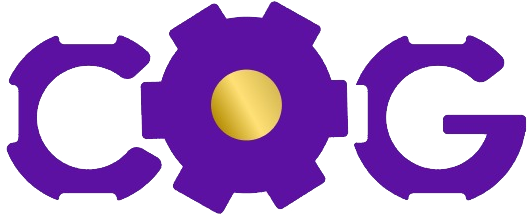Have you ever noticed how we tend to focus on our daily tasks but often forget to discuss the bigger picture of our careers? Enter the career conversation—the most important meeting you might not be having yet. These discussions are essential for anyone eager to steer their professional development and ensure continuous career growth. By engaging in open workplace communication, you can spot opportunities for improvement, enhance employee engagement, and pave your way to success.
Understanding Career Conversations
Definition and Purpose
Career conversations are more than just casual chit-chats about your job. These are intentional discussions between you and your manager or mentor focusing on your professional journey. The purpose of these conversations is to explore your career aspirations, discuss your strengths, and identify areas for development. It’s a collaborative effort to align your personal goals with the objectives of your organization. Essentially, it’s like charting a roadmap that leads to your future career milestones, ensuring everyone is on the same page.
Importance for Professional Development
Why are career conversations so crucial for your professional development? Well, without regular career check-ins, you might find yourself wandering off your intended career path or feeling stuck in your current role. These discussions act as a guiding light, helping you understand where you stand, what skills you need to polish, and where you’re headed. They serve as a platform to voice your aspirations, gain feedback, and set realistic goals to propel your career forward. Regular career conversations ensure that you are not just working a job but building a fulfilling and progressive career.
The Benefits of Career Conversations
Alignment with Organizational Goals
One significant benefit of career conversations is that they create alignment between your personal career goals and the objectives of your organization. This is crucial because when your ambitions and the company’s direction align, it’s a win-win situation. For instance:
– You understand how your role contributes to the company’s larger mission.
– It clarifies what you need to accomplish to meet both personal and organizational expectations.
– Your sense of purpose is boosted, enhancing job satisfaction and motivation.
Career conversations ensure that your objectives are not only relevant to your personal growth but also beneficial to the organization’s success, making it easier for your superiors to support and advocate for your career advancement.
Opportunities for Professional Growth
Another remarkable advantage of career conversations is that they uncover opportunities for professional growth. Here’s how:
– Identifying Skill Gaps: Through these discussions, you can identify what skills you need to develop to advance in your career.
– Accessing Training Resources: Employers are more likely to invest in your development when they see you’re proactive about your career growth.
– Networking Opportunities: Conversations can lead to introductions with mentors or colleagues who can provide valuable guidance or open doors to new roles.
When both you and your organization recognize these growth opportunities, it leads to a more engaging and dynamic work experience, ultimately propelling you further along your career path.
Enhanced Workplace Communication
Career conversations also play a pivotal role in enhancing communication at the workplace. How, you ask?
– Open Dialogue: It creates a culture of open dialogue where employees feel comfortable discussing their career paths without hesitation.
– Regular Feedback: Regular feedback during these conversations helps you understand your accomplishments and areas that need improvement.
– Building Trust: As trust builds over these conversations, it results in stronger relationships between you and your manager.
In essence, career conversations strengthen the communication channels which are the lifelines of any successful organization. With improved communication, employees are more engaged, feel valued, and are inclined to contribute their best.
Career conversations are not just about sitting down for a chat; they are strategic discussions that pave the way for your professional journey. Whether you’re aiming for a promotion, contemplating a new role, or simply want to grow within your existing position, these conversations are the stepping stones to your career success. So, don’t miss out on the most important meeting you’re not having!
Common Barriers to Career Conversations
Having an open and honest discussion about your career isn’t always easy. In fact, there are quite a few barriers that can stand in the way. Let’s dive into some of the most common obstacles and how they can affect your professional growth.
Lack of Time or Priority
In the hustle and bustle of daily work life, career conversations often take a backseat. Meetings pile up, emails flood in, and fires need putting out. It’s easy to see why setting aside time for what’s seen as a non-urgent chat might not seem pressing. However, sidelining these discussions can stall your career growth. Think of them as investments in your future—an allocation of time now that pays dividends down the road.
Fear of Feedback or Criticism
Having a career conversation can feel a bit like stepping into the spotlight. You might worry about receiving critical feedback or being asked questions you’re not prepared for. This fear can make you hesitant to engage. It’s important to remember that feedback is a tool for growth, not a personal attack. Embracing it can illuminate your strengths and areas for improvement, guiding you towards success.
Uncertainty About How to Initiate
For many, simply starting the conversation is daunting. What should you say? How do you set the right tone? Without a clear game plan, the idea of engaging in a career conversation might feel like stepping into uncharted territory. Yet, taking the first step is often the hardest part. With a little preparation, you can approach it with confidence.
How to Prepare for a Career Conversation
Preparation is key to making the most out of your career conversations. By taking some deliberate steps beforehand, you can transform a potentially awkward discussion into a valuable opportunity for growth and clarity.
Setting Clear Goals and Expectations
Begin by defining what you want to get out of the conversation. Are you seeking a promotion, interested in taking on new responsibilities, or simply looking for feedback on your current performance? Having clear objectives will keep the discussion focused and productive. Make it a point to align your goals with not only your aspirations but also with the organization’s needs.
Gathering Feedback and Supporting Information
Before heading into the conversation, collect any relevant information that can support your case. This might include feedback from colleagues, records of recent achievements, or even industry benchmarks. Armed with this information, you’ll be able to provide concrete examples of your contributions and areas for potential growth. This also prepares you to respond to any feedback you might receive constructively.
Creating a Comfortable Environment
The setting of your career conversation matters more than you might think. Opt for a quiet, private space free from interruptions. This helps create a sense of safety and confidentiality. If meeting in person isn’t feasible, ensure that your virtual setup is professional and free from distractions. A comfortable environment can make both parties more open and relaxed, fostering a more meaningful dialogue.
By understanding and addressing these common barriers, and preparing adequately, you’ll find that career conversations aren’t something to shy away from. On the contrary, they can be some of the most rewarding dialogues you have, paving the way for professional development and career growth. So, why not take the plunge and start a dialogue today? Your future self will thank you for it!
Strategies for Effective Career Conversations
 Image courtesy: Unsplash
Image courtesy: Unsplash
Career conversations are like the secret sauce in the recipe for professional growth. Let’s dive into the strategies that make these conversations not just great, but transformative.
Active Listening and Open Dialogue
Active listening is more than just a buzzword; it’s your best tool in any conversation. When you actively listen, you’re engaging with what the other person is saying. This involves nodding, making eye contact, and asking clarifying questions.
Open dialogue goes hand-in-hand with active listening. Encourage a two-way street where ideas and thoughts flow freely. Create a safe space where both parties feel valued and understood. Try prompts like:
– “Can you tell me more about that?”
– “How do you feel about your current role?”
– “What do you think would help you grow?”
Setting Realistic and Achievable Goals
Setting goals can sometimes feel overwhelming, but breaking them down makes it manageable. Start by identifying what you or your team member wants to achieve. Ensure the goals are SMART: Specific, Measurable, Achievable, Relevant, and Time-bound. You might consider goals like:
– Learning a new software within six months.
– Leading a project within the next quarter.
– Increasing department efficiency by 10% by year-end.
Making goals realistic and within reach keeps motivation high and frustration at bay.
Following Up and Taking Action
A career conversation sans follow-up is like a book with no ending. It’s crucial to revisit what was discussed and check progress regularly. This can be through:
– Scheduling regular check-ins.
– Tracking progress through shared documents.
– Celebrating small wins along the way.
Action is where the magic happens. When both sides see tangible progress, employee engagement shoots through the roof, and professional development feels tangible and rewarding.
Career conversations are a game-changer for anyone aiming to succeed in their professional journey. They aren’t just another checkbox in your work agenda; they’re the key to unlocking new possibilities in your career. When you make it a habit to have open and honest discussions about your career path, you benefit from:
– Greater clarity of your career goals
– Enhanced employee engagement
– Stronger workplace communication
So, why wait? Start having these essential conversations now, and watch your career soar to new heights! Remember, your career growth and professional development are worth discussing. Don’t miss out on the most important meeting you’re not having.


